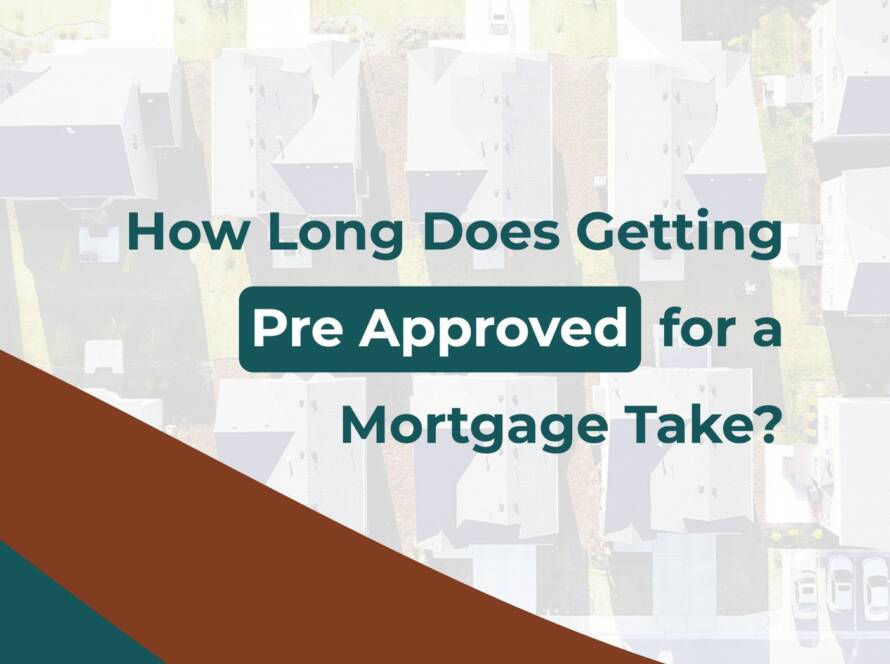A mortgage pre approval is one of the most important steps in the home-buying process, and your credit score plays a critical role in determining your eligibility. Lenders use your credit score to assess your financial responsibility and the risk associated with lending to you. A strong score can unlock better loan terms, lower interest rates, and a smoother approval process, while a lower score may limit your options or lead to higher borrowing costs. Understanding how credit scores impact mortgage pre approval can help you take proactive steps to improve your financial standing before applying.

This guide will explore credit score ranges and their effect on pre approvals, the key factors influencing credit scores, and actionable strategies to boost your score. Whether you plan to buy a home soon or prepare for a future purchase, these insights will help you present a strong financial profile to lenders.
Credit Score Ranges and Their Impact on Mortgage Pre Approval
Lenders categorize credit scores into different ranges, which influence loan approval, interest rates, and down payment requirements. The higher your score, the better your mortgage terms are likely to be.
- Excellent (750 and above): Borrowers with excellent credit qualify for the best interest rates and loan terms. They are considered low-risk and may even have access to lender incentives.
- Good (700-749): This range still qualifies for competitive rates and favorable loan options. Borrowers may not receive the absolute lowest interest rates but are still in a strong position.
- Fair (650-699): A fair score may still be eligible for mortgage pre approval, but interest rates will likely be higher. Lenders may also require a larger down payment to offset perceived risk.
- Poor (600-649): Borrowers in this range may have difficulty securing a conventional mortgage. Approval is possible with some lenders, but terms may be less favorable, and government-backed loans may be a better option.
- Very Poor (Below 600): A score below 600 makes mortgage pre approval challenging. Many lenders require significant improvements before approving a home loan.
While different lenders have varying requirements, most prefer borrowers to have a credit score of at least 620 for conventional loans. A minimum score of 580 is often required for FHA loans, though a lower score may be accepted with a higher down payment.

Key Factors That Influence Your Credit Score
Several factors determine your credit score, each carrying a different weight. The most significant factor is payment history, which accounts for 35% of your score. Lenders want to see that you have consistently paid your bills on time, as missed or late payments can indicate financial instability. Even a single late payment can lower your score significantly, so maintaining a strong payment history is crucial.

Another major factor is credit utilization, which makes up 30% of your score. This measures how much of your available credit you are using. Keeping your credit card balances below 30% of your total credit limit is ideal. High credit utilization can signal financial distress to lenders, reducing your chances of mortgage approval. Paying down balances before applying for a mortgage can help improve your score.
The length of your credit history accounts for 15% of your score. Lenders prefer borrowers with a longer history of managing credit responsibly. Keeping older accounts open and avoiding unnecessary closures can help improve this factor. Additionally, the credit mix (10% of your score) considers your credit types. A mix of credit cards, installment loans, and auto loans shows lenders that you can manage different types of debt effectively.
Finally, new credit inquiries make up 10% of your score. Each time you apply for credit, a hard inquiry is recorded on your credit report. Multiple inquiries in a short period can lower your score and signal risk to lenders. Limiting new credit applications before applying for a mortgage can help maintain a strong credit profile.
Steps to Improve Your Credit Score Before Mortgage Pre Approval
If your credit score needs improvement, taking strategic steps before applying for a mortgage can increase your chances of approval. One of the first things you should do is check your credit report for errors. Reviewing reports from all three major credit bureaus (Experian, Equifax, and TransUnion) can help you identify inaccuracies or fraudulent activity. Disputing errors and correcting mistakes can quickly improve your score.
Paying bills on time is another critical step. Since payment history is the most significant factor in your credit score, setting up automatic payments or reminders can help you avoid late payments. Even if you've missed payments in the past, consistently making on-time payments moving forward will gradually improve your score. Avoiding collections or charge-offs is also essential.
Reducing credit card balances can significantly boost your credit score. It is recommended that you keep your credit utilization below 30% of your total available credit, but the lower, the better. Paying down existing debt, especially high-interest credit cards, can help improve your financial profile before applying for a mortgage. If possible, make multiple monthly payments to keep balances low.
Finally, avoiding opening new credit accounts before applying for a mortgage is essential. Each new credit inquiry can lower your score slightly, and opening new accounts may signal increased financial risk. Instead, focus on maintaining stable credit habits in the months leading up to your mortgage pre approval application.
How Lenders Use Credit Scores to Determine Loan Terms
Beyond just qualifying for a mortgage, your credit score directly influences the interest rate and loan terms you receive. Lenders use credit scores to assess risk, meaning a higher score often results in lower interest rates and more favorable terms. Borrowers with excellent credit scores (750 and above) often receive the best rates, which can save them thousands of dollars over the life of their mortgage.

For example, a borrower with a credit score of 780 may qualify for an interest rate of 3.5%, while someone with a score of 650 might be offered a rate of 4.5% or higher. Over a 30-year mortgage, this difference can result in tens of thousands of dollars in extra interest payments. Even a small credit score improvement before applying can have a significant financial impact.
Lenders also consider your debt-to-income (DTI) ratio, which compares your monthly debt obligations to your gross income. A lower DTI ratio and a high credit score increase your likelihood of securing a mortgage with the best possible terms. Reducing existing debt and avoiding new obligations before applying can help improve your DTI ratio.
In addition to interest rates, lenders may adjust other loan terms based on your credit score. Borrowers with lower scores may face higher down payment requirements, stricter income verification, or additional fees. Maintaining a strong credit profile ensures you receive the most favorable mortgage terms.

Get Mortgage Pre Approval with the Right Team
Your credit score is one of the most critical factors in securing a mortgage pre approval. It determines your eligibility, loan options, and the interest rates you qualify for. Understanding how lenders assess credit scores and taking proactive steps to improve yours can increase your chances of a smooth approval process.
Talk to us today if you’re ready to start the mortgage pre approval process. Our team will review your credit, assess your financial standing, and confidently guide you toward homeownership.




